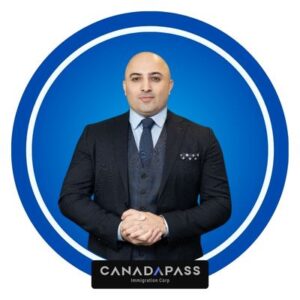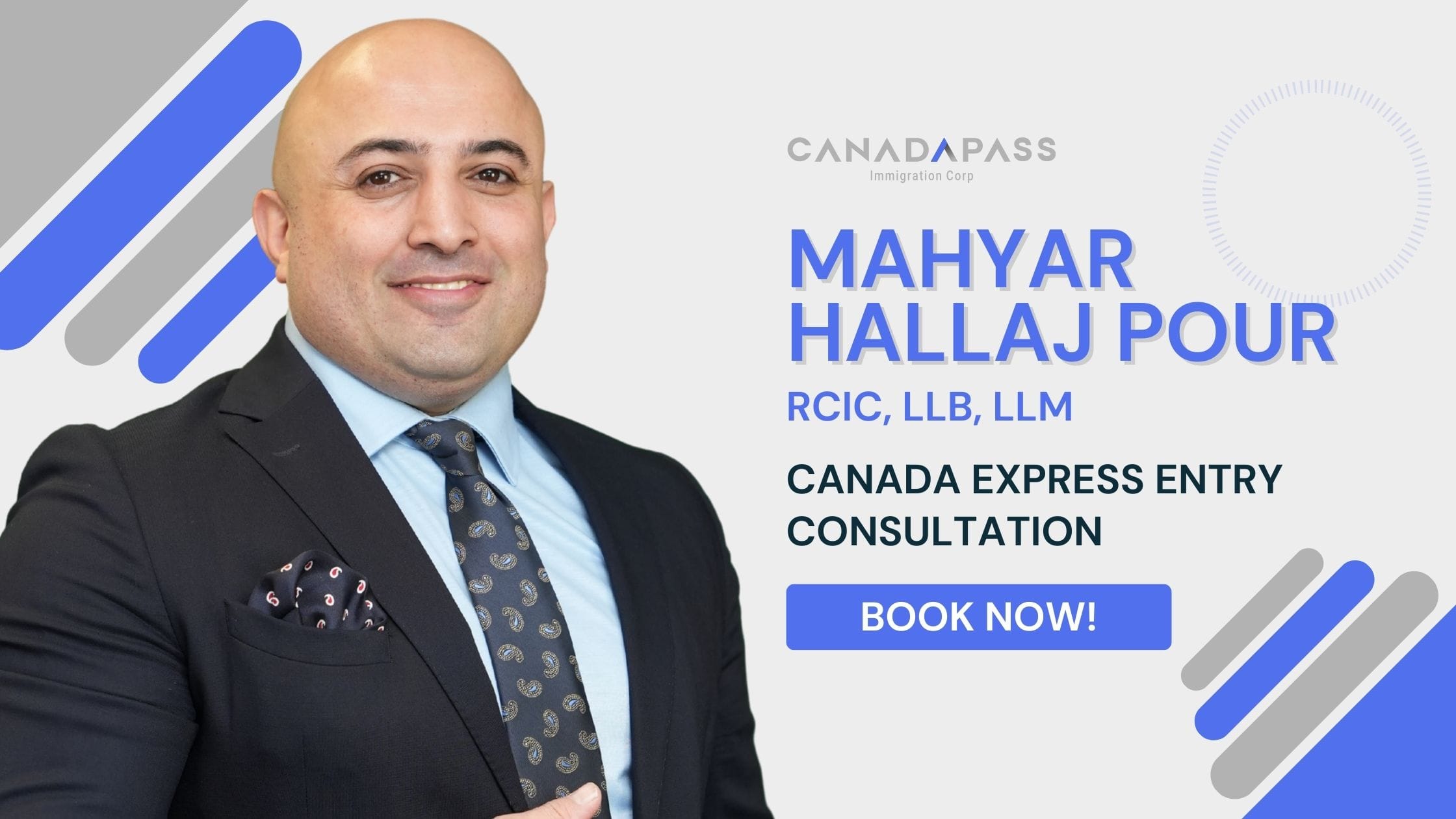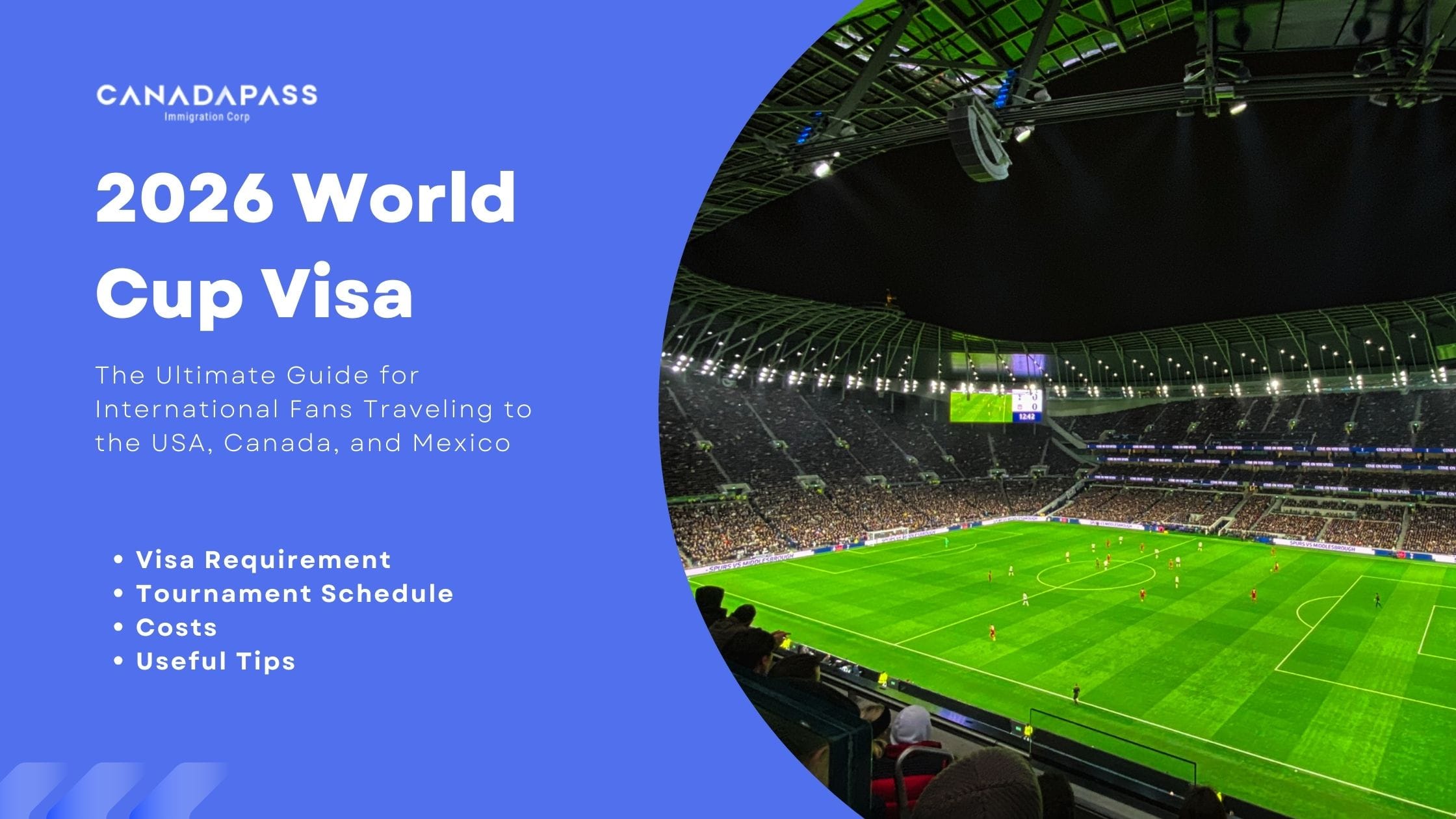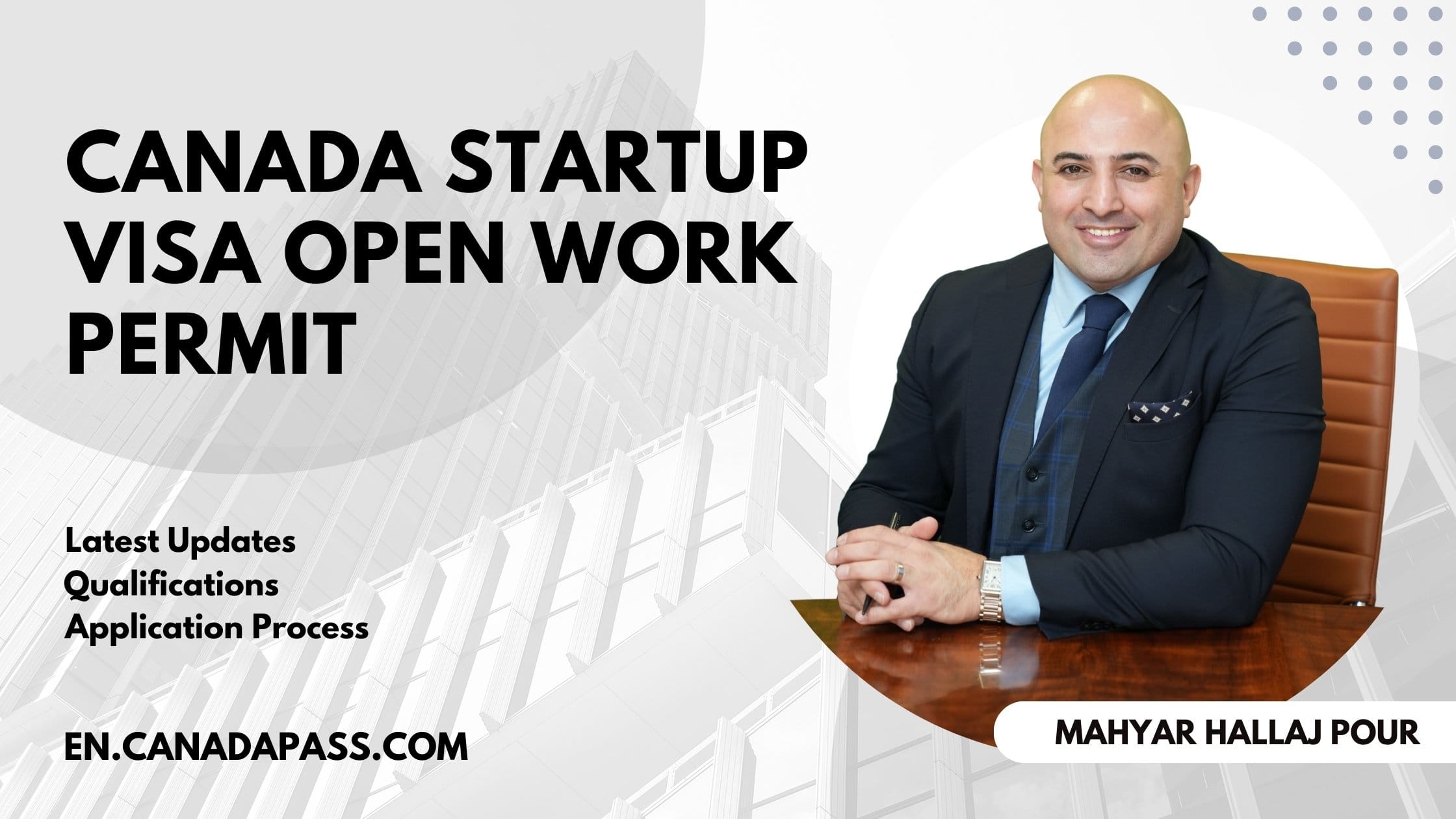The Federal Skilled Worker (FSW) program is a pathway to permanent residency in Canada for skilled workers with foreign work experience. This program is part of Canada’s Express Entry system, which assesses and ranks immigration applications based on a comprehensive points system.
Here’s the revised text of the “Who is eligible to apply under the FSW program?” section, adhering to principles of informativeness, neutrality, formality, and broad audience readability:
Federal Skilled Worker Program (FSWP) Eligibility:
To be eligible for the FSWP, individuals must meet specific criteria related to work experience, education, language proficiency, financial resources, and residency intentions.
Minimum Requirements:
- Work Experience: At least 12 months of continuous, full-time skilled work experience within the past 10 years (or equivalent part-time). “Skilled work” refers to occupations classified under Canada’s National Occupational Classification (NOC) skill levels 0, 1, 2, or 3.
- Language Proficiency: Minimum score of 7 on the Canadian Language Benchmark (CLB) in English or French language testing.
- Education: Equivalent of a Canadian high school diploma.
- Financial Support: Sufficient funds to support themselves and any dependents upon arrival in Canada.
- Residency Intentions: Must plan to reside outside Quebec province.
Point System:
Meeting the minimum requirements above does not guarantee FSWP eligibility. Applicants must also attain a minimum score of 67 out of 100 points on the FSWP eligibility points grid. This grid assigns points based on various factors, including age, education, language proficiency, and work experience.
Express Entry Profile:
Individuals meeting all minimum requirements and attaining the minimum score can create an Express Entry profile. This profile enters them into the pool of candidates for potential invitation to apply for Canadian permanent residency under the FSWP.
Applying for Canadian Permanent Residence through the FSW Program: A Step-by-Step Guide
- Create an Express Entry Profile:
- Submitting your profile doesn’t guarantee permanent residence but enters you into the applicant pool.
- You’ll receive a Comprehensive Ranking System (CRS) score based on various factors.
- Higher CRS scores increase your chances of receiving an Invitation to Apply (ITA) for permanent residence.
- Prepare Supporting Documents:
- Educational Credentials Assessment (ECA): If claiming points for foreign education, provide an ECA report from authorized organizations.
- Language Proficiency Test Results: Submit results from an approved English or French test taken within the past two years.
- Identification Documents: Gather valid passports for yourself and any accompanying family members.
- Invitation to Apply (ITA):
- If your CRS score meets the minimum threshold in an Express Entry draw, you’ll receive an ITA.
- You’ll have 60 days to submit an electronic Application for Permanent Residence (eAPR) requiring further documentation.
- Minimum CRS Score:
- Since 2015, the lowest CRS score for an FSWP ITA has been 413.
- If your score is below this, consider options to improve it for better chances.
Processing Time for FSW Applications:
The time it takes to process a Federal Skilled Worker (FSW) application under the Express Entry system can vary. Here’s a breakdown of key factors:
Express Entry Profile Validity:
Your Express Entry profile remains active in the pool of candidates for 12 months. During this period, you may receive an Invitation to Apply (ITA) for Canadian permanent residence.
ITA Response Time:
If you receive an ITA, you have 60 days to submit a complete application and supporting documents to the Government of Canada.
Standard Processing Time:
Once you submit your complete application, the standard processing time for Express Entry applications is six months. This period starts from the moment Canadian authorities receive your application and culminates in the issuance of a permanent residence visa.
Factors Affecting Processing Time:
Several factors can influence the processing time beyond the standard six months, including:
- Application Complexity: Complex applications with extensive documentation or requiring additional verifications may take longer to process.
- Application Completeness: Ensure your application is complete and includes all required documents to avoid delays due to requests for further information.
- Verification of Information: If provided information takes longer to confirm, processing might be extended.
- Adding Family Members: Including additional family members in your application can add processing time.
Recommendation:
Staying informed about your application status through your online portal is crucial. If you have any concerns, contact Immigration, Refugees and Citizenship Canada (IRCC) for updates.
Settlement Funds Requirement for FSW Applicants:
Federal Skilled Workers are required to demonstrate financial self-sufficiency for themselves and any accompanying family members upon arrival in Canada. This ensures you can support basic living expenses while establishing yourself in the country.
The required settlement funds vary based on the size of your family. Please refer to the following table for the minimum amount needed as of January 2024:
| Number of Family Members | Funds Required |
|---|---|
| 1 | $13,757 |
| 2 | $17,127 |
| 3 | $21,055 |
| 4 | $25,564 |
| 5 | $28,994 |
| 6 | $32,700 |
| 7 | $36,407 |
| Each additional family member | $3,706 |
Important Note: These are minimums, and having additional funds is recommended to cover unexpected expenses.
Here’s a revised text about FSW program processing fees, ensuring clarity and readability:
FSW Program Processing Fees:
Applying for permanent residence through the Federal Skilled Worker (FSW) program involves government processing fees, distinct from your mandatory settlement funds. These fees must be paid when submitting your application.
Here’s a breakdown of the fees for different applicants:
| Applicant | Processing Fee (CAD) |
|---|---|
| Principal Applicant | $1,365 (includes both processing fee and right of permanent residence fee) |
| Spouse, Common-Law Partner, or Conjugal Partner | $1,365 (includes both processing fee and right of permanent residence fee) |
| Dependent Child: Under 22 years old (not spouse/partner) | None |
| Dependent Child: Over 22 years old (not spouse/partner), unable to support themselves due to disability | $230 |
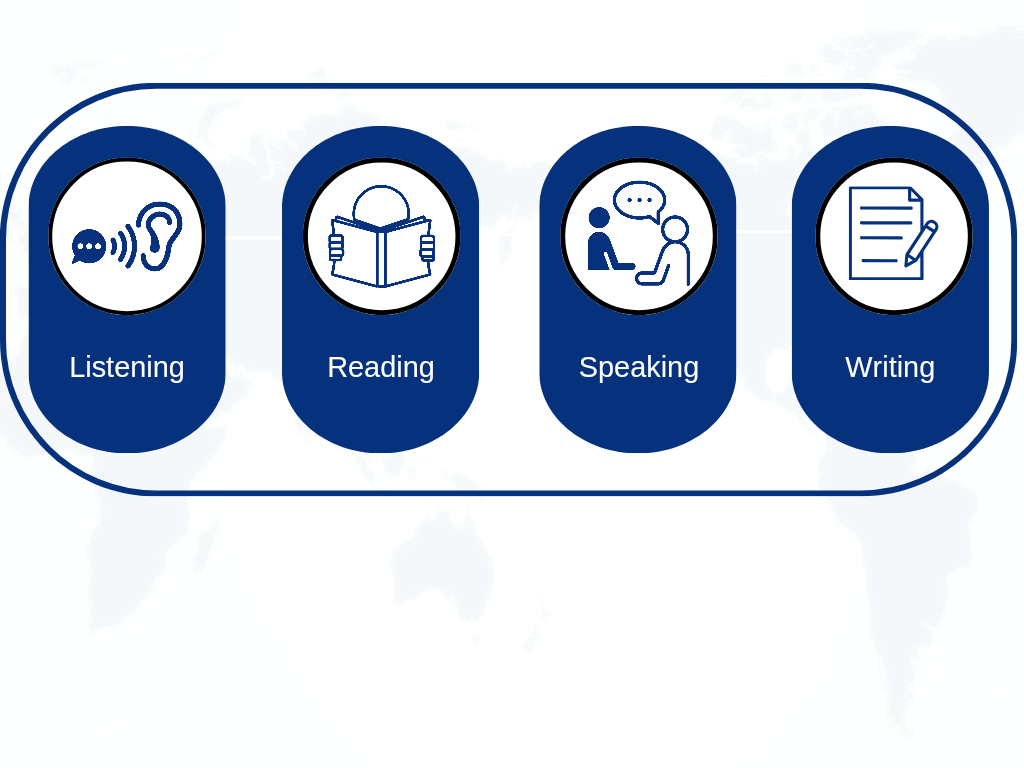
Language Requirement for FSW Program:
Proof of English or French language proficiency is mandatory for Federal Skilled Worker applicants. You must achieve a minimum score of Canadian Language Benchmark (CLB) 7 on an approved test in all four skill areas:
- Listening
- Reading
- Speaking
- Writing
Only language tests accepted by Immigration, Refugees and Citizenship Canada (IRCC) are valid. Examples include the IELTS, CELPIP, TEF, and TCF Canada.
Important Points:
- Your test results must be less than two years old when you submit your application.
- Meeting the minimum CLB 7 requirement is necessary but not guaranteed to make you eligible for the FSW program. Other eligibility factors also come into play.
Eligible Occupations for the Federal Skilled Worker Program (FSWP)
To be eligible to apply for the FSWP, your work experience must be classified under specific skill levels defined by the National Occupational Classification (NOC). Here’s a breakdown of the skill types and examples of eligible occupations:
Skill Type 0 (zero): Management Jobs
- Restaurant managers
- Retail and wholesale trade managers
- Managers in foodservice and accommodation
- And more
Skill Level A: Professional Jobs
- Usually require a university degree
- Information technology (IT) occupations
- Engineering and construction occupations
- Legal occupations
- And more
Skill Level B: Technical Jobs and Skilled Trades
- Usually require a college diploma or apprenticeship training
- Chefs
- Plumbers
- General office workers
- Retail salespersons
- And more
Most In-Demand Jobs for the FSWP
While all eligible occupations under the listed skill types are accepted, some specific professions are currently in higher demand:
- Sales Representative
- Accountant
- Engineering Project Manager
- Business Analyst
- IT Project Manager
- Accounts Manager
- Software Engineer
- Recruitment specialist
- Nurses
- Truck Drivers
- Vocational Institutes
- Business Managers Consultants
- Welder
- Electrician
- Steamfitter and Pipefitter
- Vet
- Pharmacist
- Human resources Manager
- Administrative Assistant
Focusing on in-demand jobs can potentially increase your chances of receiving an Invitation to Apply (ITA) through the Express Entry system. Remember, meeting the FSWP eligibility criteria and having in-demand work experience does not guarantee an ITA. Other factors like your Comprehensive Ranking System (CRS) score also play a crucial role.
It’s essential to carefully review the NOC and thoroughly assess your work experience to ensure it aligns with the eligible occupations and skill levels before applying for the FSWP.
Understanding the difference between FSWP and Express Entry:
- Federal Skilled Worker Program (FSWP): This is a specific immigration program within Canada’s Express Entry system. It’s designed for skilled workers with foreign work experience who want to become permanent residents. To be eligible for FSWP, you must meet certain requirements regarding work experience, education, language proficiency, and financial resources.
- Express Entry: This is not a program itself, but rather an online system designed to manage applications for three different economic immigration programs: FSWP, Canadian Experience Class (CEC), and Federal Skilled Trades Program (FSWTP). Think of it as a streamlined process for organizing and selecting candidates from these immigration programs based on a merit-based system.
In simpler terms:
- FSWP is what you apply for, it’s your immigration path.
- Express Entry is how your application is processed and ranked, it’s the system through which you navigate your FSWP journey.
Calculating Your Federal Skilled Worker (FSW) Points
To be eligible for the FSWP, you must score at least 67 points on the FSW points grid. Here’s a breakdown of the factors and their point values:
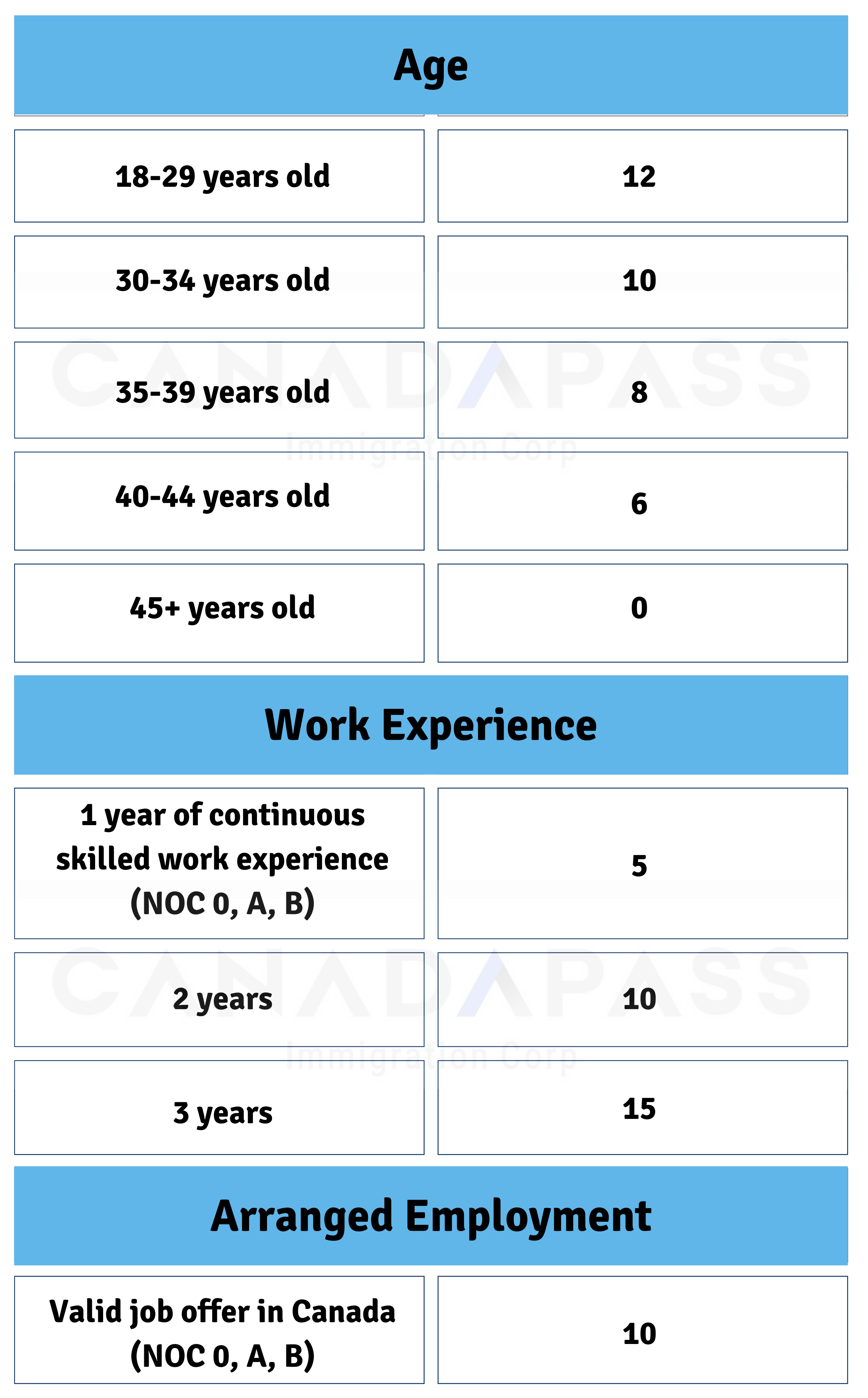
| Factor | Points |
|---|---|
| Education | Points |
| High school diploma | 0 |
| Canadian bachelor's degree or equivalent | 25 |
| Master's degree or equivalent | 28 |
| Doctoral degree or equivalent | 31 |
| Language Proficiency | Points |
| CLB 7 in English or French | 26 |
| CLB 8 in English or French | 28 |
| CLB 9-10 in English or French | 30 |
| Age | Points |
| 18-29 years old | 12 |
| 30-34 years old | 10 |
| 35-39 years old | 8 |
| 40-44 years old | 6 |
| 45+ years old | 0 |
| Work Experience | Points |
| 1 year of continuous skilled work experience (NOC 0, A, B) | 5 |
| 2 years | 10 |
| 3 years | 15 |
| Arranged Employment | Points |
| Valid job offer in Canada (NOC 0, A, B) | 10 |
| Adaptability | Points |
| Spouse/common-law partner has CLB 4+ in English or French | 5 |
| Previous study in Canada (2+ years) | 5 |
| Spouse/common-law partner's previous study in Canada (2+ years) | 5 |
| Relative in Canada (parent, grandparent, sibling, aunt/uncle, niece/nephew) | 5 |
| Minimum Pass Score | 67 |
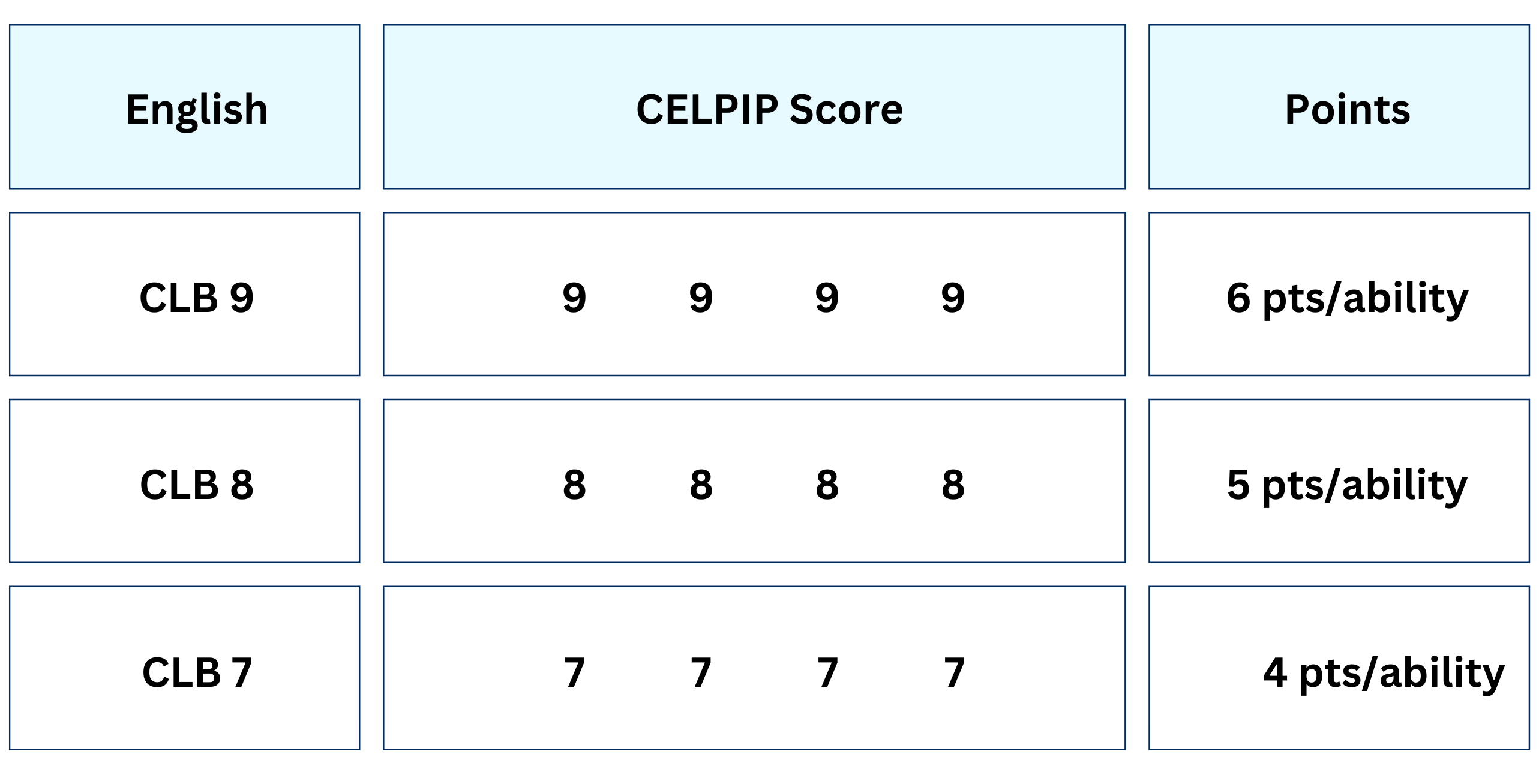


Educational Points for FSWP
Here’s a table summarizing the points awarded for different levels of education within the FSWP:
| Level of Education | Points |
|---|---|
| Doctoral (PhD) level | 25 |
| Master's level | 23 |
| Two or more post-secondary degrees (at least one for a program of at least 3 years) | 22 |
| Post-secondary degree - 3 years or longer | 21 |
| Post-secondary degree - 2 years | 19 |
| Post-secondary degree - 1 year | 15 |
| Secondary school | 5 |
| Maximum Points | 25 |
Yes, your spouse or common-law partner and dependent children under 22 can apply for open work or study permits while you establish your business.
While not mandatory, seeking guidance from an experienced immigration lawyer can be helpful throughout the application process, especially if your situation is complex or you have any doubts.
Whether or not a criminal record will bar you from immigrating to Quebec depends on the severity of the crime and the sentence you received. You should consult with an immigration lawyer to discuss your specific situation.
While French language proficiency is mandatory for the QSWP, there are other immigration programs for Quebec that may not require French, or have lower language requirements. Exploring these options and considering French language training are beneficial in the long term for successful integration in Quebec.
You can find more information on the websites of the Ministère de l’Immigration, de la Francisation et de l’Intégration (MIFI) and Immigration, Refugees and Citizenship Canada (IRCC).
Quebec offers many benefits for skilled workers, including:
- Strong job market in various sectors.
- High quality of life with affordable healthcare and education.
- Beautiful natural environment and vibrant culture.
- Pathway to Canadian citizenship.
You can include your spouse or common-law partner and dependent children in your QSWP application. They will also need to meet certain eligibility requirements, such as language proficiency.
The processing time for QSWP applications can vary, but is generally quicker than other programs. The MIFI aims to process complete applications within six months.
The required documents depend on your specific situation, but may include:
- Proof of identity and status.
- Educational credentials.
- Proof of work experience.
- Language test results.
- Proof of financial self-sufficiency.
- Police clearance certificates.
To be eligible for the QSWP, you must:
- Be at least 18 years old.
- Have a valid passport.
- Intend to live and work in Quebec.
- Demonstrate financial self-sufficiency.
- Meet the minimum score on the Quebec selection grid, based on your age, education, work experience, language proficiency, and ties to Quebec.
- Have a minimum level of French language proficiency (typically Level 7 on the Quebec French Proficiency Scale).
Language Proficiency
| Language Proficiency | |||||
|---|---|---|---|---|---|
| English | IELTS Score | Points | |||
| First Official Language | Speaking | Listening | Reading | Writing | |
| CLB 9 | 6 | 6 | 6 | 6 | 6 pts/ability |
| CLB 8 | 5 | 5 | 5 | 5 | 5 pts/ability |
| CLB 7 | 4 | 4 | 4 | 4 | 4 pts/ability |
| Second Official Language (OPTIONAL) | |||||
| *Score must be met in all four abilities | 4 | 4 | 4 | 4 | 4 points |
| English | CELPIP Score | Points | |||
| CLB 9 | 9 | 9 | 9 | 9 | 6 pts/ability |
| CLB 8 | 8 | 8 | 8 | 8 | 5 pts/ability |
| CLB 7 | 7 | 7 | 7 | 7 | 4 pts/ability |
| Second Official Language (OPTIONAL) | |||||
| *Score must be met in all four abilities | 5 | 5 | 5 | 5 | 4 points |
| Français | Marque TEF | Points | |||
| Première langue officielle | Expression orale | Compréhension de l'orale | Compréhension de l'écrit | Expression écrite | |
| NCLC 9 | 371+ | 298+ | 248+ | 371+ | 6 pts/compétence |
| NCLC 8 | 349-370 | 280-297 | 233-247 | 349-370 | 5 pts/compétence |
| NCLC 7 | 310-348 | 249-279 | 207-232 | 310-348 | 4 pts/compétence |
| Seconde langue officielle (OPTIONELLE) | |||||
| *vous devez atteindre le seuil minimal dans chacune des quatre compétences linguistiques | 226-371+ | 181-298+ | 151-248+ | 226-371+ | 4 points |
| Français | Marque TCF | Points | |||
| Première langue officielle | Expression orale | Compréhension de l'orale | Compréhension de l'écrit | Expression écrite | |
| NCLC 9 | 14+ | 523+ | 524+ | 14+ | 6 pts/compétence |
| NCLC 8 | 12-13 | 503-522 | 499-523 | 12-13 | 5 pts/compétence |
| NCLC 7 | 10-11 | 458-502 | 453-498 | 10-11 | 4 pts/compétence |
| Seconde langue officielle (OPTIONELLE) | |||||
| *vous devez atteindre le seuil minimal dans chacune des quatre compétences linguistiques | 6+ | 369-397+ | 375-405+ | 6+ | 4 points |
| Maximum | 28 | ||||
Age
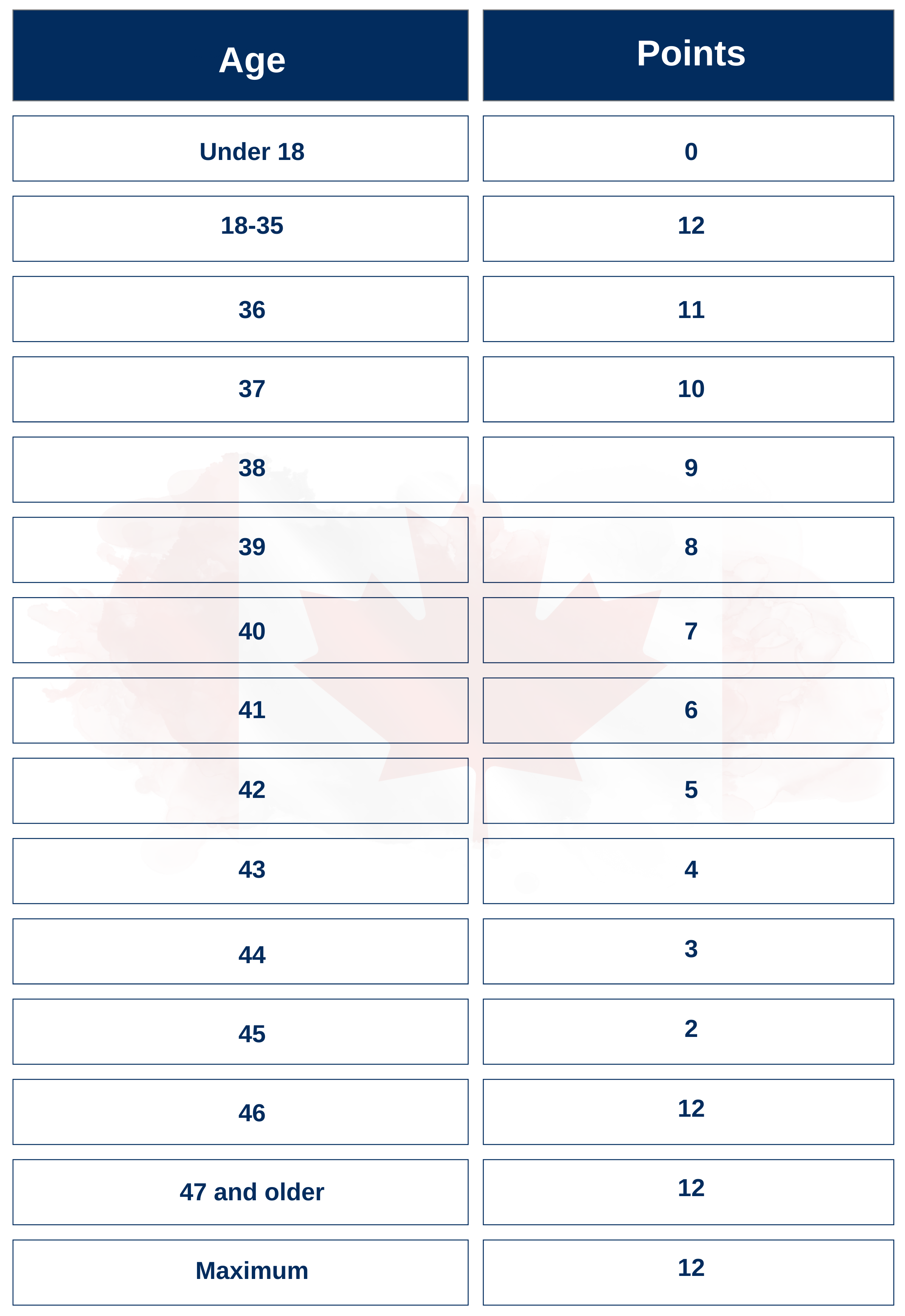
| Age | Points |
|---|---|
| Under 18 | 0 |
| 18-35 | 12 |
| 36 | 11 |
| 37 | 10 |
| 38 | 9 |
| 39 | 8 |
| 40 | 7 |
| 41 | 6 |
| 42 | 5 |
| 43 | 4 |
| 44 | 3 |
| 45 | 2 |
| 46 | 1 |
| 47 and older | 0 |
| Maximum | 12 |
Work Experience
| Work Experience | Points |
|---|---|
| 6 or more years | 15 |
| 4-5 years | 13 |
| 2-3 years | 11 |
| 1 year | 9 |
| Maximum | 15 |
Arranged Employment
| If | And | Points |
|---|---|---|
| You currently work in Canada on a temporary work permit. | Your work permit is valid both when you apply and when the visa is issued (or you are authorized to work in Canada without a work permit when your visa is issued) | 10 |
| IRCC issued your work permit based on a positive Labour Market Impact Assessment (LMIA) from Employment and Social Development Canada (ESDC). Your employer would have applied for the LMIA, which you then had to attach to your application to IRCC | ||
| You are working for an employer named on your work permit who has made a permanent job offer based on you being accepted as a skilled worker. | You currently work in Canada in a job that is exempt from the LMIA requirement under an international agreement (such as the North America Free Trade Agreement) or a federal-provincial agreement. Your work permit is valid both when you apply and when the visa is issued (or you are authorized to work in Canada without a work permit when your visa is issued) | 10 |
| Your current employer has made a permanent job offer based on you being accepted as a skilled worker | ||
| You have been working for that employer for at least 1 continuous year, full-time or part-time equivalent. | ||
| You currently do not have a work permit, or do not plan to work in Canada before you get a permanent resident visa. | You are currently working in Canada and a different employer has offered to give you a permanent full-time job | 10 |
| You are currently working in Canada in a job that is exempt from a Labour Market Impact Assessment, but not under an international or federal-provincial agreement. | ||
| An employer has made you a permanent job offer based on you being accepted as a skilled worker | ||
| The employer has a positive Labour Impact Assessment from ESDC | 10 | |
| Maximum | 10 |
Adaptability
| Your Experience | Points |
|---|---|
| Your past work in Canada | 10 |
| Your spouse or partner's full-time work in Canada | 5 |
| Your past study in Canada | 5 |
| Your spouse or partner's past study in Canada | 5 |
| Arranged Employment in Canada | 5 |
| Your spouse or partner's language level | 5 |
| Relatives in Canada | 5 |
| Maximum | 10 |
FSW Eligibility Points vs. CRS Score:
- FSW Eligibility Points:
- These are the minimum points you need to qualify for the FSW program and submit your Express Entry profile.
- You must score at least 67 points on the FSW points grid based on your education, language proficiency, age, work experience, and adaptability factors.
- Think of it as a threshold to enter the Express Entry pool.
- CRS Score:
- This is a dynamic score assigned to each Express Entry profile based on several factors like your FSW points, education, language proficiency, work experience, age, and adaptability.
- It determines your position in the Express Entry pool relative to other candidates.
- Higher CRS scores lead to a higher chance of receiving an Invitation to Apply (ITA) for Canadian permanent residence.
Key Differences:
- FSW Eligibility Points:
| Feature | FSW Eligibility Points | CRS Score |
|---|---|---|
| Purpose | Qualify for the FSW program | Rank your Express Entry profile |
| Minimum requirement | 67 points | N/A (Dynamic score) |
| Factors considered | Education, language, age, work experience, adaptability | FSW points, education, language, work experience, age, adaptability, other factors |
| Impact on Express Entry | Must meet minimum to enter the pool | Determines your position in the pool |
In simpler terms:
- FSW points are the entry ticket to the Express Entry pool.
- Your CRS score is your ranking within the pool.
Understanding Foreign Work Experience for FSWP
What is foreign work experience for FSWP?
- Paid work experience outside of Canada acquired within the past 10 years.
- Must be in a skilled occupation classified under National Occupational Classification (NOC) skill type A, B, or 0. These skill types include professional, technical, and management jobs.
- Full-time (30 hours per week) or equivalent part-time experience counts. You can combine several part-time jobs to reach the required hours.
Why is it important?
- Minimum requirement for Express Entry profile submission under the FSWP. You need at least one year of relevant foreign work experience.
- Contributes to your FSW points for Express Entry ranking. The more relevant and continuous your experience, the more points you can potentially earn.
Finding your NOC code:
- To determine if your work experience qualifies under NOC A, B, or 0, you need to first identify your NOC code.
- The IRCC website provides tools and resources to help you find your NOC code based on your job title, duties, and responsibilities.
- Accurate NOC code identification is crucial to ensure your work experience is counted towards FSWP eligibility and points.
Foreign Work Experience and Official Language Proficiency
| Years of Experience | Points for foreign work experience + CLB 7 | Points for foreign work experience + CLB 9 |
|---|---|---|
| No foreign work experience | 0 | 0 |
| 1-2 years of foreign work experience | 13 | 25 |
| 3+ years of foreign work experience | 25 | 50 |
Foreign Work Experience and Canadian Work Experience
| Years of Experience | Points for foreign work experience + 1 year of Canadian work experience | Points for foreign work experience + 2 or more years of Canadian work experience |
|---|---|---|
| No foreign work experience | 0 | 0 |
| 1-2 years of foreign work experience | 13 | 25 |
| 3+ years of foreign work experience | 25 | 50 |

